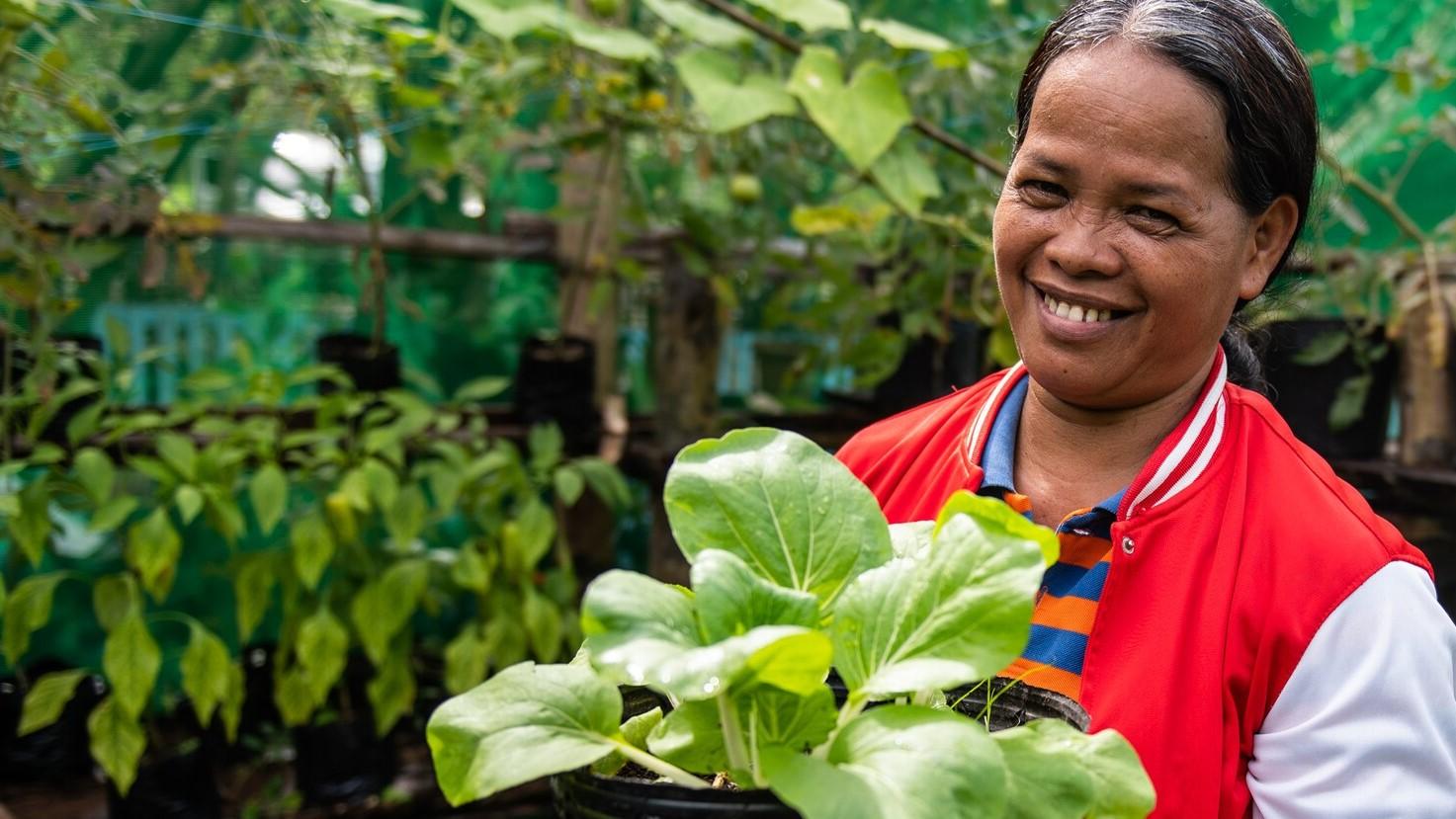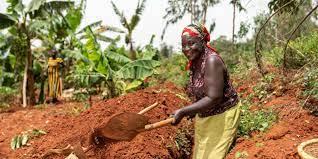
13 OCT, 2023
Of the 783 million people living in hunger, 13.6 million of them are children. They are experiencing severe acute malnutrition, and two million of them die every year. The latest Status of Food Security and Nutrition report suggests 2.4 billion people, especially women and those in rural areas, lack year-round access to safe and nutritious food. As a global community, we must do more to support those who are most marginalised, and fight collectively to end food injustices across the world.
There is an urgent need for changes in policies, regulations, and values to foster a more just and sustainable food system, that prioritises people's well-being.
Addressing these inequities requires an approach that combines community empowerment, policy changes, and sustainable food systems that advance alternative economic models based on social justice and cooperative ownership of power over food production.
Below are ten reasons why food injustice persists, and some steps VSO is taking to address them.
1. Unsustainable food production
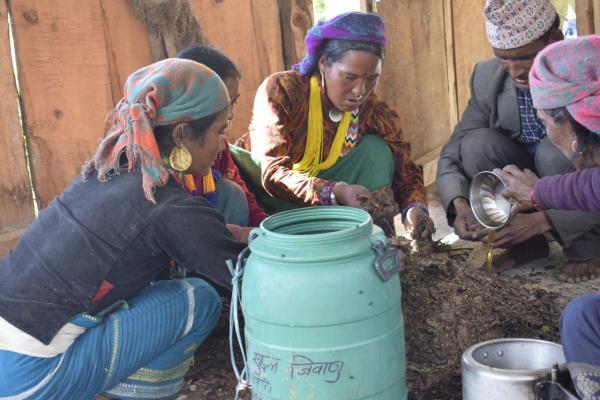
The way food is produced globally exacerbates food injustice.
Current practices rely on modern seeds that only respond well to agrochemical fertilizers and pesticides, which generate substantial greenhouse gas emissions, accounting for approximately one-third of global emissions.
Land degradation affects over 25% of the world's arable land, and plantation-type monoculture consumes around 70% of freshwater resources, further contributing to biodiversity loss and soil degradation.
This approach to food production, combined with a concentration of resources in the hands of a few agribusinesses' limits access to land and resources for smallholder farmers. To combat food injustice, we need to transition to more sustainable and resilient methods of food production.
Since 2021, VSO has been promoting agroecology across Africa and Asia, as a pathway for transforming the food system in ways that are community-controlled, ecologically-sound and socially inclusive.
These include projects that promote indigenous seeds systems, traditional ecological knowledge, community-controlled food systems, and food and nutrition education initiatives that emphasise cohesion, inclusion, resilience and social accountability.
2. Rampant food losses and waste
A shocking amount of food is wasted each year. 931 million tonnes of food are wasted, contributing to 8-10% of global carbon emissions.
Implementing measures to reduce food waste, improve post-harvest handling, and strengthen food storage and processing, can help tackle this issue. But challenging this imbalance requires a shift towards sustainable consumption patterns and policies that incentivise waste reduction.
VSO’s Safe Food Project in Bangladesh, led by smallholder women farmers and propped up by youth platforms, is transforming food production through a zero-waste process, by employing agroecological farming practices that recycles farm waste, thereby reducing greenhouse gas emissions while enhancing soil health.
3. Limited access to productive resources
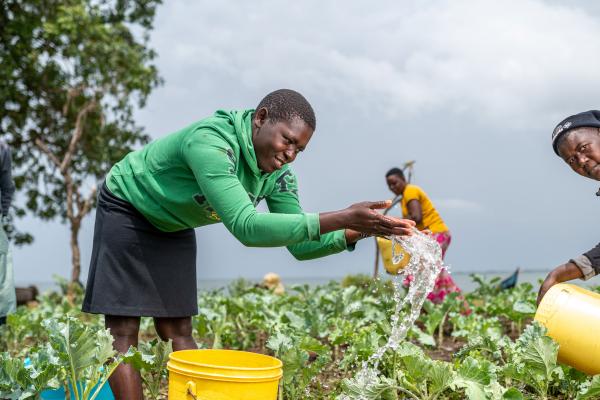
Unequal access to land, water, and other productive resources hinders food production for marginalised communities. The World Bank (2021) highlights that smallholder farmers operate on just 12% of the world's agricultural land. This access to land hampers their productivity perpetuating poverty and food insecurity among rural communities.
Women, who make up a substantial portion of the agricultural labour force own less than 20% of the world's land, limiting their ability to secure food and income.
Promoting equitable food systems requires advocating for land redistribution, land tenure rights for smallholder farmers, and agroecological land and water management practices that prioritise community ownership.
Empowering women by recognising women as farmers with the same entitlements as men and promoting women's rights in agriculture, are essential steps to address this disparity.
In Kenya, VSO works with young women’s agroecological farming collectives, meaning local people can secure food at a local level, and share farm resources (including land) amongst themselves. They are also forming groups savings and loan associations which strengthen their financial literacy and control over incomes, ensuring that their voice and agency drive the development process.
4. Privatisation of seeds and genetic resources
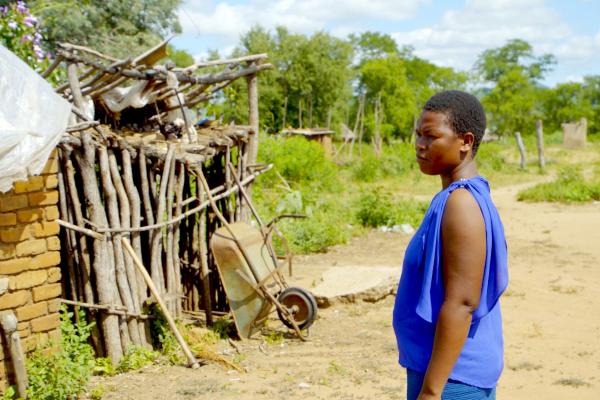
The privatization of seeds and genetic resources is a significant issue.
According to the Food and Agriculture Organization (FAO), approximately 75% of the world's food crops rely on just 12 plant and five animal species, diminishing agricultural diversity and making crops vulnerable to pests and diseases.
The loss of traditional seed varieties and the promotion of patented seeds have further marginalized small-scale farmers. It is estimated that just 20 corporations' control 67% of the global commercial seed market. This concentration of power limits access to diverse, locally adapted seeds and undermines food security.
To combat this injustice, grassroots movements and policy interventions are crucial to protect farmers' rights, promote seed-sharing networks, and challenge intellectual property rights regimes (e.g., seed laws) that impede seed saving and exchange.
In Zimbabwe, VSO works with farmers and local communities to promote indigenous seeds within the framework of agroecology as a solution to enhance productivity, crop diversity, and nutrition security.
5. Exploitative markets
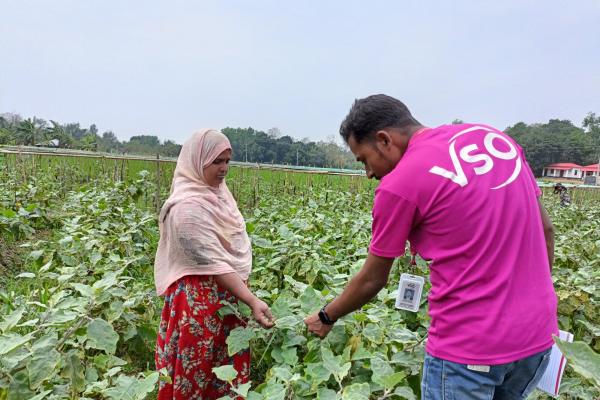
Unfair trade practices, price volatility, and the dominance of powerful market players disproportionately affect small-scale farmers and marginalised communities, leading to unequal access to nutritious food.
According to the United Nations Conference on Trade and Development (UNCTAD), the global food system is heavily skewed towards a few transnational corporations, with just 10 companies controlling approximately 15% of the world's total food sales. This concentration of market power limits opportunities for smaller producers, reducing their bargaining power and income.
In Bangladesh, the Safe Food Project puts emphasis in producing safe food and making them available to the most marginalised and vulnerable people. Food is sold to consumers through youth platforms ensuring the needs of farmers and consumers are met.
It is a form of direct marketing, but with the involvement of youth groups that educate consumers about the virtues of safe food and of producing them the agroecological way, it is slowly injecting local markets with the spirit of producer-consumer solidarity.
6. Climate change and environmental degradation
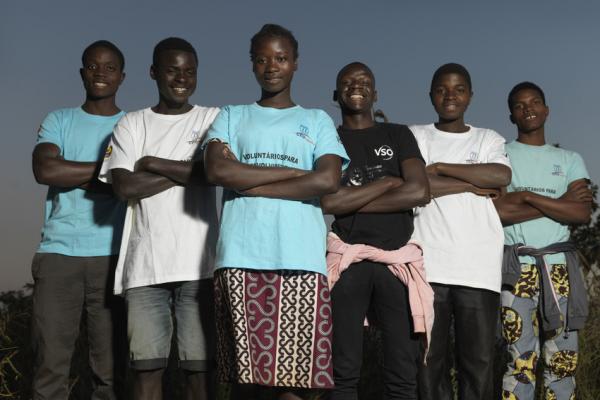
Erratic weather patterns due to climate change can reduce crop yields by up to 25%, contributing to food shortages and price spikes.
Environmental degradation, including soil erosion, affects approximately 33% of global soils, diminishing agricultural productivity. Resource depletion, habitat loss, and the resulting loss of biodiversity further exacerbate food insecurity. Addressing these challenges through sustainable resource management and climate-resilient farming practices is crucial to combat food injustice and ensure food security for all.
In Mozambique and Malawi, VSO uses youth platforms to equip communities with assessment tools with youth volunteers leading climate-related loss and damage assessments. VSO’s climate champions are also taking leadership roles in international spaces to engage governments in implementing their climate commitments.
7. Weak governance and policy gaps
Weak governance and policy gaps play a pivotal role in driving hunger and food injustice. Inadequate policies, governance structures, top- down decision-making processes and corruption hinder effective food system management. Addressing these disparities requires strengthening governance frameworks, promoting policy coherence, and supporting participatory decision-making processes to ensure diverse voices are heard and marginalized communities have a seat at the table.
In Zimbabwe, VSO is working with partners to hold those in power to account through citizen-led monitoring and dialogue to improve delivery of public services. VSO is working with several local and international organisations and the agriculture ministry, to elevate the practice of agroecology and contribute to the formulation of a national agroecology policy, bringing in the voices and agency of small holder farmers.
8. Lack of social protection
Insufficient social safety nets and inadequate access to healthcare and social services perpetuate food inequities. According to the World Food Programme, over 9% of the global population, or approximately 688 million people, suffer from chronic undernourishment due to inadequate access to food assistance and financial support (WFP, 2021).
Inadequate healthcare access further compounds this issue, with the WHO reporting that approximately 11% of the world's population lacks access to essential healthcare services (WHO, 2021). Insufficient social services also hinder nutritional education, leaving individuals without the knowledge and resources needed to make healthy food choices, which can contribute to the cycle of food inequities.
Expanding social protection programs, improving access to health services, and ensuring a rights-based approach to food security can help alleviate these disparities and improve access to food for the marginalised and most vulnerable.
In Nepal, VSO is working with the National Farmers Group Federation (NFGF) and other partners, and with municipal and provincial governments, to localise and implement the people’s Right to Food.
9. Conflict and displacement
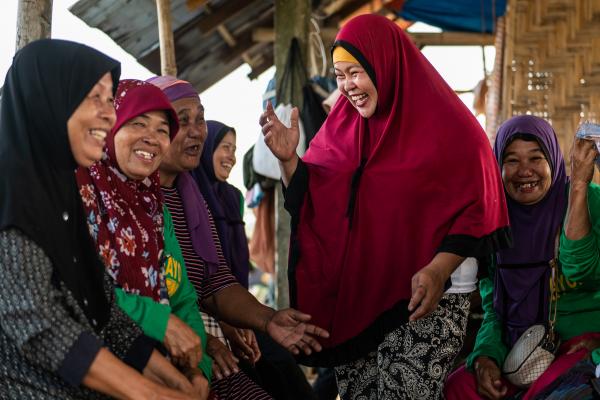
Conflict and displacement disrupt agricultural activities, transportation and trade routes, and affect the production and movement of food from production areas to markets, resulting in food scarcity, prices spikes, and food inequities amongst affected populations.
Conflict and displacement can also lead to the loss of livelihoods, as people may be forced to abandon their occupations. According to the World Food Programme (WFP), more than half of the world's hungry people live in conflict-affected areas, which has a disproportionate impact on children
Conflict also disrupts agricultural activities, damages infrastructure, and displaces farmers, leading to crop failures and reduced food production. In conflict-affected countries, agricultural yields can drop by 20%.
These statistics highlight the devastating impact of conflict and displacement on food security, emphasizing the urgent need for humanitarian assistance and conflict resolution efforts to address food injustice and alleviate the suffering of affected populations. Peacebuilding efforts, humanitarian assistance, and support for refugees and internally displaced persons are vital for addressing these disparities.
In Ethiopia, VSO is working with refugees and partner organisations to grow agroecological collective food farms in refugee camps. In the Philippines, VSO works with partners to provide livelihood trainings to a group of internally displaced women in Mindanao, as well as with ex-rebels to normalise peace and transform former rebel camps into peace and eco-tourism sites.
10. Inadequate food and nutrition education
According to the World Health Organization (WHO), over 2 billion people worldwide suffer from diet-related health issues due to poor dietary choices and limited nutrition knowledge.
Addressing this knowledge gap through education programs, awareness campaigns, and training initiatives is crucial to empower communities and ensure equitable access to nutritious food, combating food injustice on a global scale. Similarly, supporting education programs that promote agroecology can empower individuals to advocate for a just and equitable food system.
In Malawi, VSO is embarking on a project integrating agroecological nutrition gardening in schools as part of early childhood education to make early head start in food and nutrition literacy. We envision to scale up this initiative not only in Malawi, but across Africa and Asia.
Food injustice and inequalities are the outcome of a complex food production and distribution system which is not set up to meet the needs of the majority of the world’s people.
Only by revaluating the way food systems work at both a global and local level, will we be able to achieve SDG 2, and create a world free from hunger.
Support us wit


